Phone:
(701)814-6992
Physical address:
6296 Donnelly Plaza
Ratkeville, Bahamas.
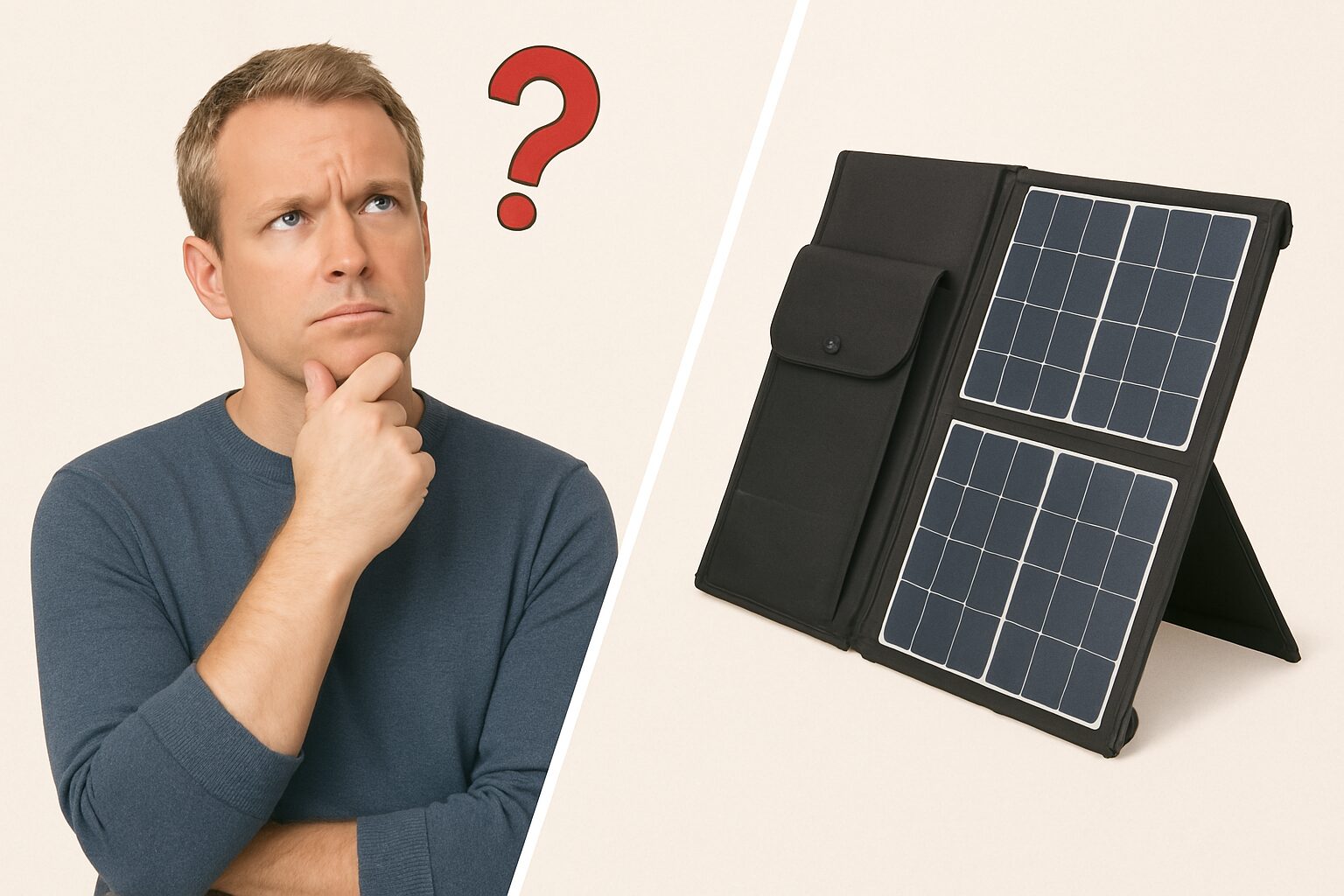
Need a reliable way to charge your devices on the go? Portable solar power panels are your answer. This article dives into their effectiveness, selection tips, and their benefits for outdoor adventures.
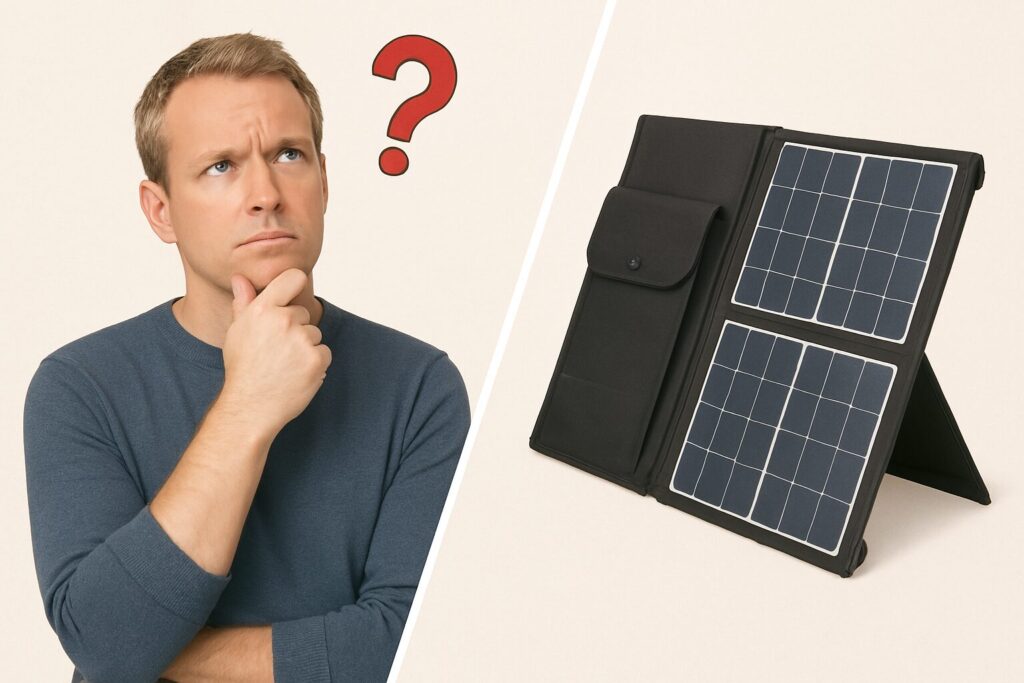
Portable solar panels have transformed the concept of accessing energy while mobile. These panels excel in energy production, becoming a preferred option for individuals who spend time away from conventional power sources. Their design is notable for being lightweight and ultra-portable, offering tremendous convenience in transport and setup during outdoor excursions such as hikes, camping trips, or beach outings.
Equipped with USB-A and USB-C ports, contemporary portable solar panels enable charging diverse electronics ranging from smartphones to tablets and certain laptops. The foldability of many models underscores their portability, rendering them perfect companions for any outdoor adventure.
These monocrystalline panels and associated solar cells are adept at efficiently converting sunlight into electrical power—providing an eco-friendly and handy solution to keep your gadgets powered up wherever you go.

When choosing a portable solar panel, it’s essential to assess various critical attributes that align with your individual requirements. Considerations such as the power output capacity of the panel, its conversion efficiency, and its size are paramount. The intended application for the solar panel will significantly influence these criteria. For activities like prolonged excursions or outdoor adventures where dependable energy is crucial, selecting panels with higher wattage and enhanced efficiency is advisable.
Foldable solar panels offer an advantage due to their lightweight nature and compactness, making them effortless to transport and deploy. They provide a user-friendly installation experience that even those without technical expertise can manage easily. Foldable options are particularly attractive for individuals who value ease-of-use in their equipment.
Ensuring you opt for a portable solar unit that satisfies both your personal needs and financial constraints is fundamental when making your selection.
The price of portable solar panels is usually influenced by their dimensions and level of efficiency. Larger solar panels provide a more favorable cost-to-watt ratio, which translates to greater cost-effectiveness over time. This means that the upfront investment for these larger panels tends to be steeper. Considering both your budget constraints and energy requirements can guide you towards making a well-informed decision when purchasing.
On the other hand, while smaller portable solar panels might seem less expensive at first glance, they typically do not match the efficiency or electrical output capabilities found in bigger panel models. For those who consistently need ample electricity, opting for a larger and more efficient solar panel may prove economically wise in the long term as it could minimize the necessity for additional supplementary panels or extra battery packs—enabling one to produce an increased amount of power overall.
Portable solar panels come in a variety of sizes, typically ranging from 50 to 350 watts. The size of the panel directly impacts its charging speed and portability. Larger panels can charge devices more quickly due to their higher wattage, but they also tend to be heavier and more expensive.
When selecting a panel, consider how you plan to use it. For example, if you need to charge multiple devices quickly, a larger panel might be worth the extra weight and cost. On the other hand, if portability is your primary concern, a smaller panel that fits easily into your backpack might be the best choice.
When choosing a solar panel, it’s essential to consider its compatibility with portable power stations. Connecting several panels together can considerably boost the total power output for more demanding setups.
It’s important that the voltage of the solar panel aligns with your power station’s requirements for efficient charging without complications. Daisy-chaining multiple panels provides increased adaptability and enhanced energy capacity, which is particularly beneficial for outdoor activities.
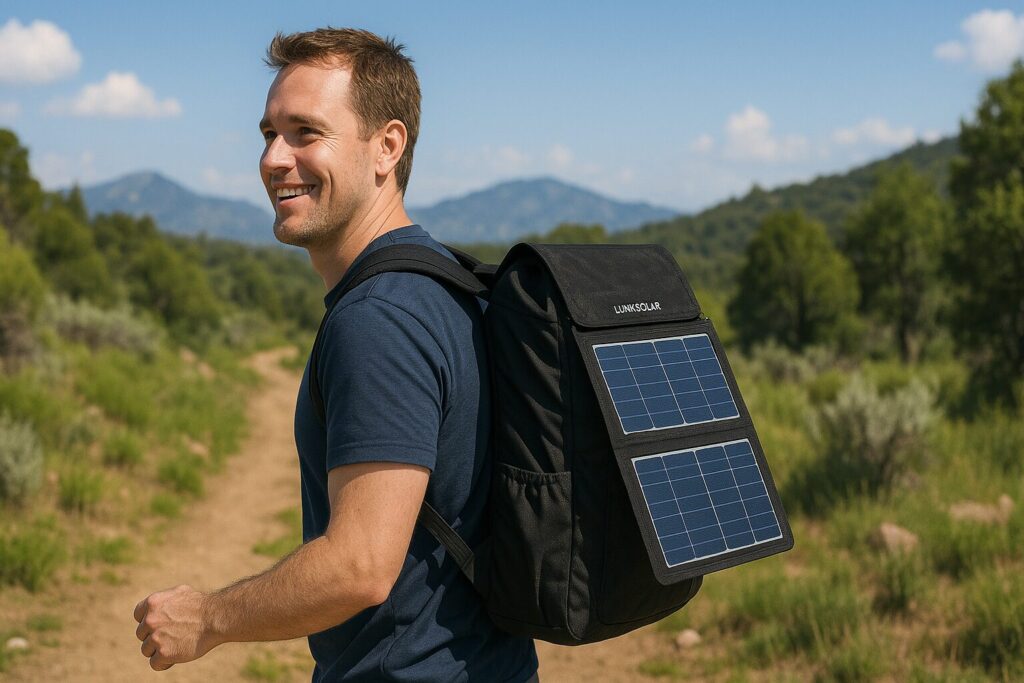
Weather conditions, especially the availability of sunlight, greatly affect how portable solar panels function. Seasonal variations, different times during the day, and varying degrees of cloudiness can all alter how efficiently your solar panel transforms sunlight into energy that you can use.
It is essential to understand the performance of your panel in diverse weather situations when managing your energy requirements. Being aware of both the strengths and restrictions of your portable solar unit will assist you in maximizing its utility whether you find yourself under clear or cloudy skies.
Inclement weather, such as rain, doesn’t automatically render portable solar panels ineffective. Numerous top-tier solar panels are equipped with waterproof certifications that allow them to operate efficiently despite being wet. Panels that carry an IP67 rating have the capability to withstand submersion in water up to a depth of 1 meter for half an hour, providing superior protection against water ingress.
Similarly, models boasting an IP68 rating can tolerate being submerged deeper than 1 meter and for more prolonged durations. These robust features make such portable solar panels adept at facing heavy rainfall while continuing to supply power to your devices amidst challenging weather conditions.
Winter conditions can enhance solar panel efficiency. Cold temperatures improve solar panels’ ability to convert sunlight into electricity. Snow can insulate panels, improving performance in cold weather.
However, snow accumulation can hinder efficiency, so position panels to allow snow to slide off easily. With the right setup, portable solar panels can continue to provide reliable power even in winter.
Solar panels typically operate with reduced efficiency under low-light conditions, which diminishes their ability to generate substantial amounts of energy. While they are capable of generating a certain amount of electricity even in such conditions, the output might be too meager for powering bigger devices.
It is important to take into account this constraint when assessing energy requirements for locations that experience inadequate sunlight exposure.
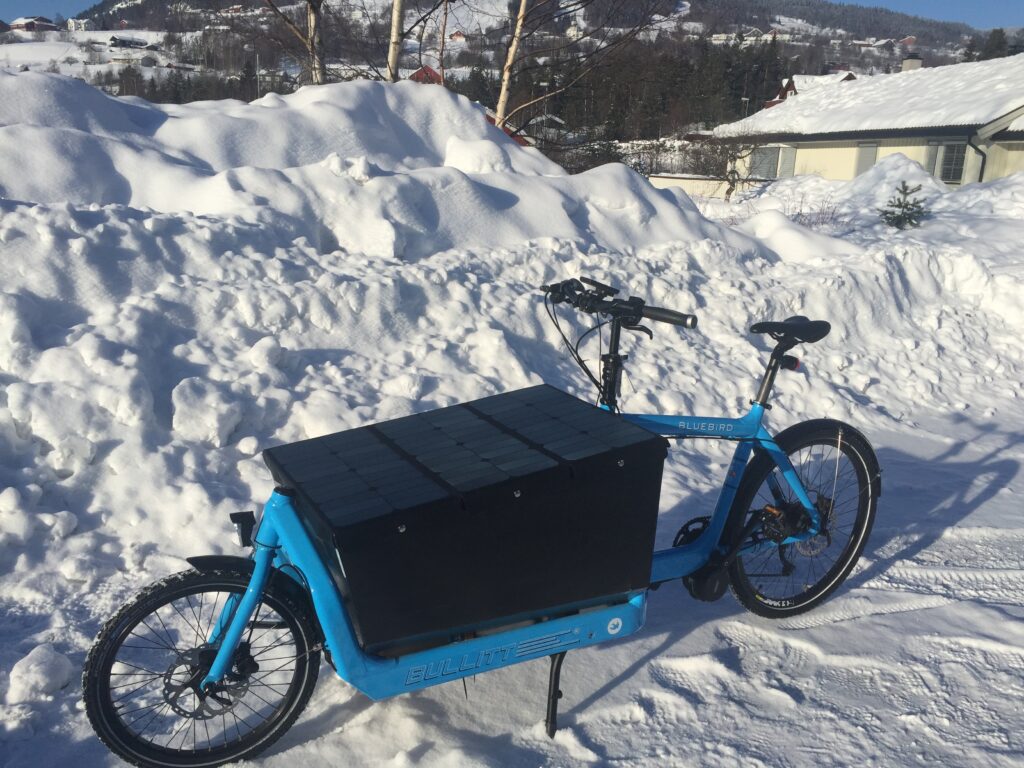
Portable solar panels can charge various devices, from smartphones and tablets to laptops and battery banks, depending on wattage. Higher efficiency and larger sizes increase the variety of devices that can be charged.
Consider your specific power needs, portability, and charging efficiency when selecting a panel to find the best match. This ensures a reliable power source for all your devices during outdoor adventures.
Portable solar panels come in a range of wattages to accommodate various devices. Panels with less than 20 watts are perfect for charging small electronic items such as phones and battery packs, while you’ll need panels with more wattage for bigger appliances.
These portable solar panels often include a variety of output ports like USB-A and USB-C, allowing multiple devices to be charged at the same time. This capability is essential for ensuring that all your portable electronics remain powered up through the use of these versatile panels.
The duration it takes to charge can be greatly influenced by the size of the solar panel and the intensity of sunlight present during solar charging. Panels with a higher wattage are more efficient at charging larger devices rapidly, especially when they are exposed to direct sunlight.
Usually, the best time for charging is from 11 AM to 2 PM, as this is when sunlight reaches its peak intensity. If there’s cloud cover, the panel’s output will decrease markedly, which in turn extends how long it takes to charge devices.
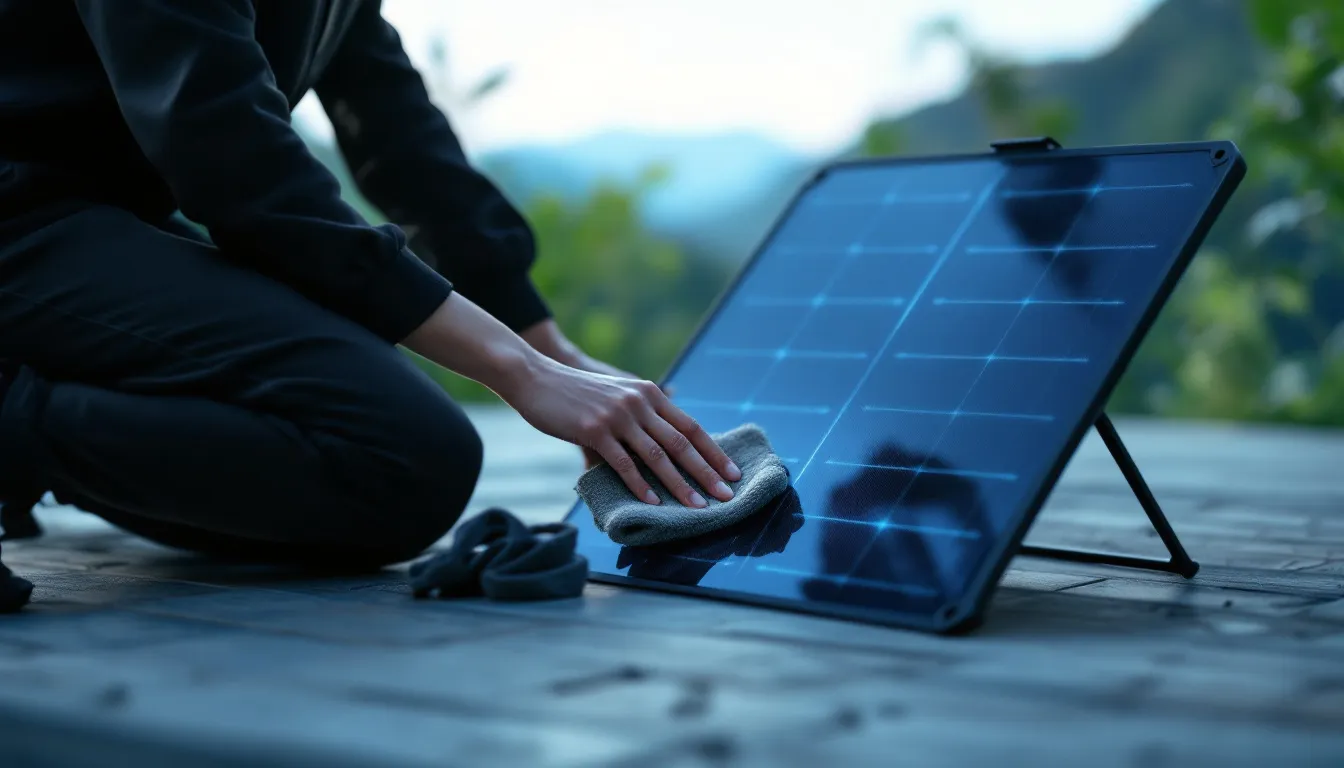
Regular maintenance ensures that portable solar panels operate efficiently and last longer. Proper care maximizes lifespan and performance, ensuring a reliable power source for years.
Proper maintenance includes regular cleaning, careful storage, and handling to prevent damage. Following these practices keeps your panels in top condition, ready to harness the sun’s energy whenever needed.
Regular cleaning of solar panels is essential to preserve their peak efficiency by eliminating any dust and debris that may block sunlight from being absorbed effectively. It’s advisable to use a soft cloth along with a non-abrasive cleaner for the safe removal of grime.
Employing a mild detergent combined with water works best since strong chemicals could harm the panels. Adhering to this straightforward maintenance practice guarantees that your solar panels continue functioning efficiently and productively.
Keep portable solar panels in a location that is both cool and dry, shielded from direct sunlight to hinder the deterioration of materials. This method of preservation wards off damage caused by environmental factors and prolongs their service life.
It’s essential to handle portable solar panels with caution and store them securely when moving about, as this will prevent any harm during transportation. Adhering to these recommendations guarantees your panels stay in top-notch shape.
Careful handling is essential to avoid physical damage during transport. Improper handling can lead to damage, compromising panel performance.
Care during transport and handling prevents damage and ensures panel longevity. Attention to detail helps maintain the efficiency and reliability of your solar power system.
In summary, portable solar panels present a highly efficient and accessible solution for energy production while mobile. These panels are perfectly suited for outdoor activities due to their light weight, compactness, and ability to fold, offering a consistent source of power for various devices. It’s crucial to evaluate aspects like cost, dimensions, and how well they work with your portable power stations when selecting the appropriate panel.
Comprehending the performance of these solar panels under varying weather conditions and committing to proper upkeep is key in ensuring they continue to be reliable sources of power. Armed with adequate knowledge and maintenance practices, portable solar can greatly improve your experience in nature by providing an eco-friendly and effective means of keeping your devices charged.
Portable solar panels are indeed effective for outdoor activities, as their lightweight and compact design makes them easy to transport and use in various environments. They provide a reliable source of energy for charging devices while enjoying the outdoors.
To choose the right portable solar panel, focus on power output, efficiency, size, price, and compatibility with your devices.
This ensures you select a panel that meets your specific energy needs effectively.
Yes, portable solar panels can work in rainy or snowy conditions, as many are designed with waterproof ratings (IP67 or IP68) to ensure their functionality. This makes them reliable even in less-than-ideal weather.
Portable solar panels can efficiently charge devices such as smartphones, tablets, laptops, and battery banks, making them versatile for various needs.
Ensure to check the wattage compatibility for optimal performance with your device.
To maintain your portable solar panels, regularly clean them with a non-abrasive cleaner and soft cloth, store them in a cool, dry place, and handle them carefully during transport.
This will help ensure their longevity and efficiency.